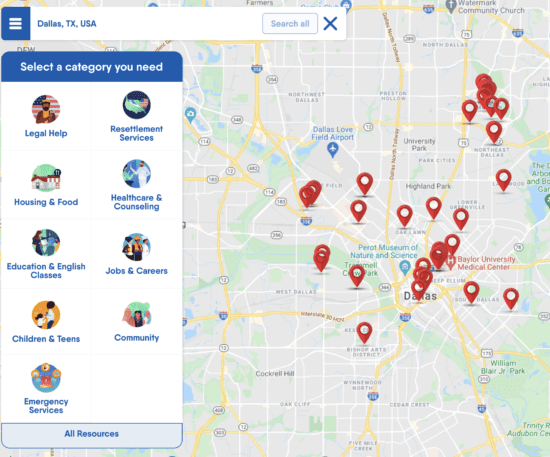Open enrollment for health and dental insurance through the Health Insurance Marketplace is now open. Learn more below.
What is health insurance?
Health insurance, or medical insurance, is a contract between you and a health insurer. It covers some or all your healthcare costs in exchange for a monthly payment. The monthly cost of the insurance you pay is called the premium.
Having health insurance can be referred to as being covered or being insured. Health insurance can protect you from having to pay large medical bills. It is often better to pay the premium every month than suddenly get a huge bill from a hospital.
Health insurance plans typically pay for the following services:
- Medical visits and screenings
- Labs, imaging, and immunizations
- Mental health services
- Urgent care and emergency services
- Prescription drugs
Health insurance companies offer multiple plans for different premiums. Each plan has specific coverage and conditions for a set monthly premium. Some health insurance providers also pay for vision and dental care.
Often the insurance company does not pay for all of the expenses. You might have to pay a deductible when you get care. A deductible is an amount you have to pay before your insurance starts paying for your healthcare.
You may also have to make co-payments for certain medical services and prescriptions. Each plan also specifies which doctors and healthcare facilities you can visit.
How do I get health insurance?
In the United States, you can get health insurance through:
- government (public health) insurance programs
- your job, with help from your employer
- private health insurance that you buy yourself
Government health insurance programs
Government health insurance programs offer help to people who can’t afford health insurance or who meet certain requirements. It is offered by the federal or state government. It can also be called a public health program.
Medicaid
Medicaid is a public health program offered by your state. The program provides insurance for older adults, people with disabilities, children, pregnant women, and families with low incomes. Some refugee families will enroll in Medicaid when they first arrive in the United States.
CHIP
The Children’s Health Insurance Program (CHIP) provides free or low-cost health coverage for children. This is for families that earn too much money to qualify for Medicaid. In some states, CHIP covers pregnant women.
Medicaid and CHIP for immigrants
Immigrants who are qualified non-citizens are generally eligible for Medicaid and CHIP if they meet their state’s income and residency rules.
Qualified non-citizens include:
- Green Card holders (lawful permanent residents)
- Refugees and asylees
- Cuban/Haitian entrants
- Humanitarian parolees
- Battered non-citizens, spouses, children, or parents
- Victims of trafficking and their spouse, child, sibling, or parent
Many qualified non-citizens including Green Card holders, must wait 5 years after receiving qualified immigration status before they can apply for Medicaid. Refugees and asylees do not have to wait for 5 years. In 21 states, children and pregnant women do not have to wait for 5 years to get CHIP coverage.
Immigrants who are not lawfully present in the U.S. or are undocumented are not generally eligible for Medicaid or CHIP. Some states allow income-eligible people to apply for Medicaid and CHIP regardless of their immigration status. These include California, Illinois, Massachusetts, New York, Oregon, and Washington.
Emergency Medicaid
Emergency Medicaid is available for immigrants who are not considered “qualified non-citizens” but meet all other income and state residency rules. Undocumented immigrants can get Emergency Medicaid. Emergency Medicaid pays for emergency services, including hospitalizations.
You do not have to give the immigration status of your family or the people that you live with. Learn more about government health coverage for immigrants.
| Medicaid and CHIP are not considered a public charge unless it is used for long-term care in a public health institution, such as a nursing facility. Learn more about the public charge rule. |
Medicare
Medicare is a federal public health program offering health coverage primarily for people age 65 or older. Medicare is also available for younger people with disabilities and people with End Stage Renal Disease or Lou Gehrig’s disease (ALS). U.S. citizens and Green Card holders can apply for Medicare if they meet the eligibility requirements.
There are multiple types of Medicare, including:
Part A: Hospital insurance
Part B: Medical insurance
Part D: Prescription medications
The premium for Part A is free for people who have paid Medicare taxes for at least 10 years. The total cost of Medicare varies depending on your income.
WIC
Women, Infants, and Children (WIC) helps children under five years old, pregnant women, and breastfeeding mothers from households with low income. WIC focuses on nutrition, food supply, and improving access to healthcare and social welfare services. It is a healthcare program offered by your state.
Women and children with any immigration status, including undocumented immigrants, can apply for WIC.
Private health insurance
The majority of Americans have private health insurance coverage. Over half of the people living in the USA have private health insurance through their job. People who don’t have employment-based insurance can buy health insurance directly from an insurance provider.
Workplace health insurance
Jobs that offer health insurance pay a large part of the costs of health insurance. The employee pays a part of the health insurance costs. Some offer different health plans. Employees can also choose to include their spouse and children in their health insurance plans at an extra cost.
In some circumstances when you leave your job, you can extend your coverage through a government plan called COBRA. COBRA is available for teams with 20 or more employees and lasts only for a short period of time. You may have to pay the whole premium by yourself.
Health Insurance (ACA) Marketplace
The Health Insurance Marketplace is a government program that allows you to buy private health insurance. It was created by the Affordable Care Act (also known as Obamacare) which requires most U.S. citizens and legal residents to have health insurance. It looks at how much money you make to decide how much you can pay for insurance. You can search for insurance online or in person.
U.S. citizens and lawfully present immigrants can use the ACA marketplace. Undocumented immigrants are not eligible for health insurance through the ACA unless they have DACA. Starting in November 2024, DACA recipients can apply for health insurance through HealthCare.gov and state-based marketplaces.
Non-citizens must have:
- Humanitarian status including Temporary Protected Status, asylum applicants, Convention Against Torture, victims of trafficking, or DACA
- Valid non-immigrant visas
- Legal status through other laws (temporary resident status, LIFE Act, Family Unity individuals)
Open Enrollment
Health Insurance Marketplace Open Enrollment runs from November 1, 2024, to January 15, 2025. During this time, you can enroll in a new plan, renew your current plan, or make changes to your health insurance.
- Enroll or renew by December 15, 2024, for your coverage to start on January 1, 2025.
- If you enroll or renew after December 15, your coverage starts February 1, 2025.
- After January 15, you can only enroll or make changes if you qualify for a Special Enrollment Period due to life changes like losing coverage, moving, getting married, or having a baby.
- If you are currently enrolled and do not renew or cancel, you may be automatically re-enrolled using your existing information.
- Note: Medicaid and CHIP applications are open year-round.
Health insurance companies
You can also buy health insurance directly from health insurance companies in your state. You have the right to buy health insurance regardless of your immigration status.
College medical insurance plans
Students can buy healthcare insurance through their colleges. You may have to be enrolled in a certain number of credits to apply for health insurance through your school. Contact your health center to find out what your options are.
Alternatives to insurance
If you do not have health insurance, there are health centers and clinics that offer free or low-cost medical care.
Health care providers are not required to ask for your about your immigration status nor are they required to report it. You cannot be denied medical care because of your status.

Find legal help, English classes, health clinics, housing support, and more. Search a local map and list of services for immigrants in the USA with the app FindHello.
NEXT: Learn how to find a doctor
The information on this page comes from USA.gov, healthcare.gov, and other trusted sources. We aim to offer easy to understand information that is updated regularly. This information is not legal advice.



